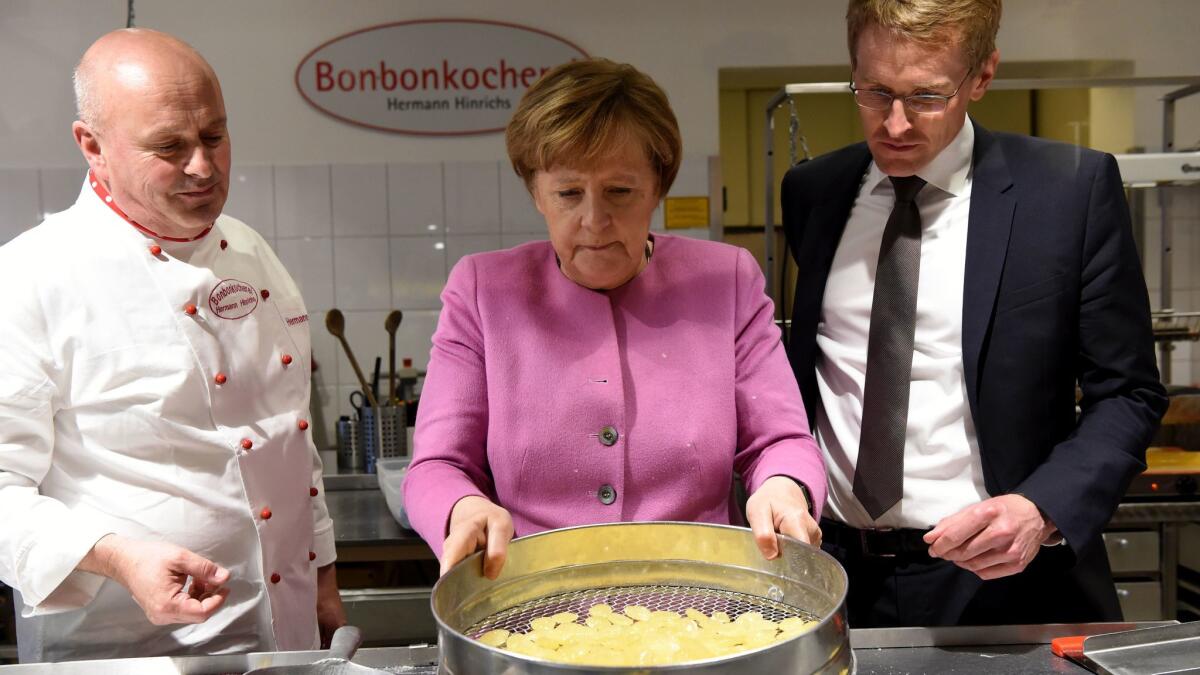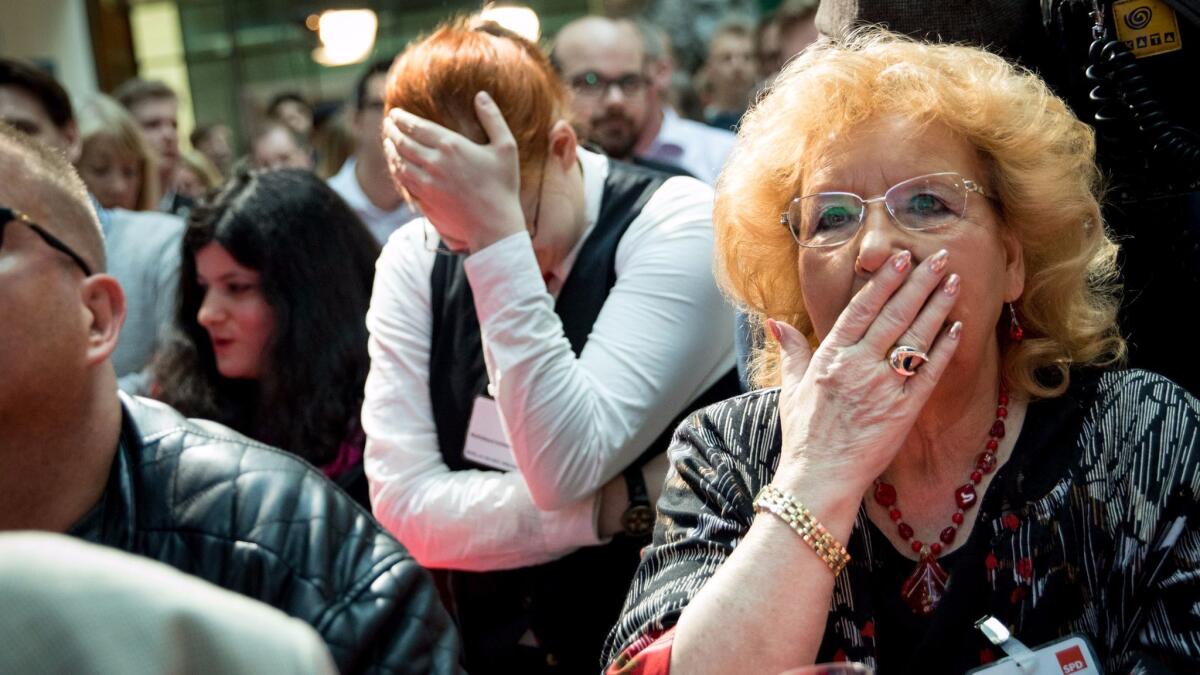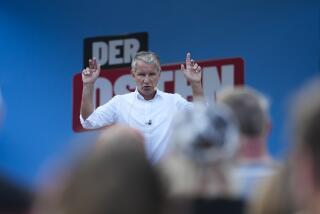A sweet victory for Angela Merkel in the dairy lands of northern Germany

Reporting from Berlin ‚ÄĒ German Chancellor Angela Merkel‚Äôs reelection hopes in September‚Äôs federal election were unexpectedly bolstered on Sunday when her conservative party came from behind to score a decisive victory in a small, windswept state on the Danish border.
The stunning triumph by her Christian Democrats over the ruling center-left Social Democrats in the largely rural state of Schleswig-Holstein, home to 2.3 million voters and 400,000 dairy cows, gave Merkel an improbable boost four months before the federal election and badly needed momentum ahead of next Sunday‚Äôs more important regional election in the country‚Äôs most populous state ‚ÄĒ North Rhine-Westphalia, with 13 million voters.
Merkel is seeking a fourth four-year term on Sept. 24, and her party allies had shown signs of panic that they could lose power after the conservatives slipped behind the Social Democrats in national opinion polls in January for the first time in 11 years. That was after the long-suffering center-left party had picked a colorful, straight-talking, multilingual challenger to Merkel: Martin Schulz.
‚ÄúThis hurts like hell,‚ÄĚ said a dejected Schulz after TV network projections showed the Social Democrats picking up less than 27% of the vote in the northernmost state, a drop of nearly 4 percentage points from the last election. Merkel‚Äôs conservatives won 32.5%, up 1.7 percentage points.

Throughout the campaign, Merkel, who has shaken off signs of fatigue over the unrelenting criticism from party allies over her decision to allow in more than a million refugees from Syria and elsewhere in 2015, remained unflappable and stoically confident in her party’s chances.
Her steady handling of an awkward first meeting with President Trump at the White House in March and the improvement in their relationship also helped lift Merkel’s standing, political scientists said. Trump even surprised Merkel by calling to congratulate her after her conservatives held on to power with a win in another regional election in March in the small state of Saarland.
The Social Democrats’ state premier in Schleswig-Holstein, Torsten Albig, committed a colossal blunder shortly before Sunday’s election, telling celebrity magazine Bunte that he had left his wife for another woman because their interests had diverged over the years after she became a stay-at-home mom.
Since taking power in 2005, Merkel’s Christian Democrats have lost control of six of Germany’s 16 states and now rule just five.
Her party now will try to form a government with two smaller parties in the state ‚ÄĒ the Greens, which won about 13% and the Free Democrats, which won just over 11%. If that fails, the Christian Democrats could form a government with the defeated Social Democrats.
Kirschbaum is a special correspondent.
ALSO:
Le Pen concedes as Macron wins in a landslide; he will be youngest president in French history
More to Read
Sign up for Essential California
The most important California stories and recommendations in your inbox every morning.
You may occasionally receive promotional content from the Los Angeles Times.










